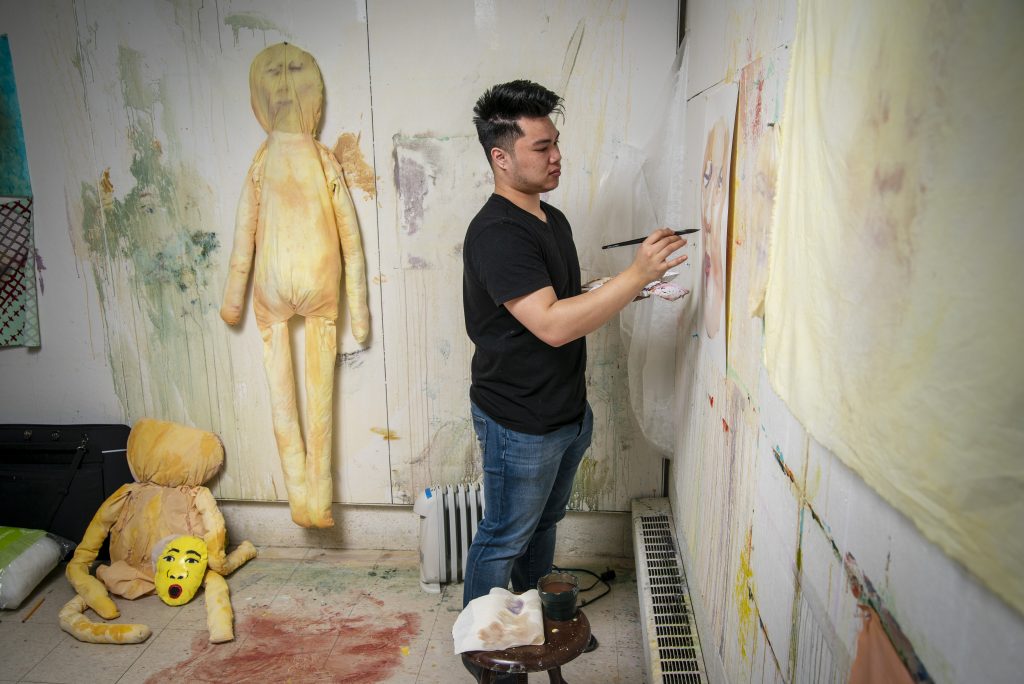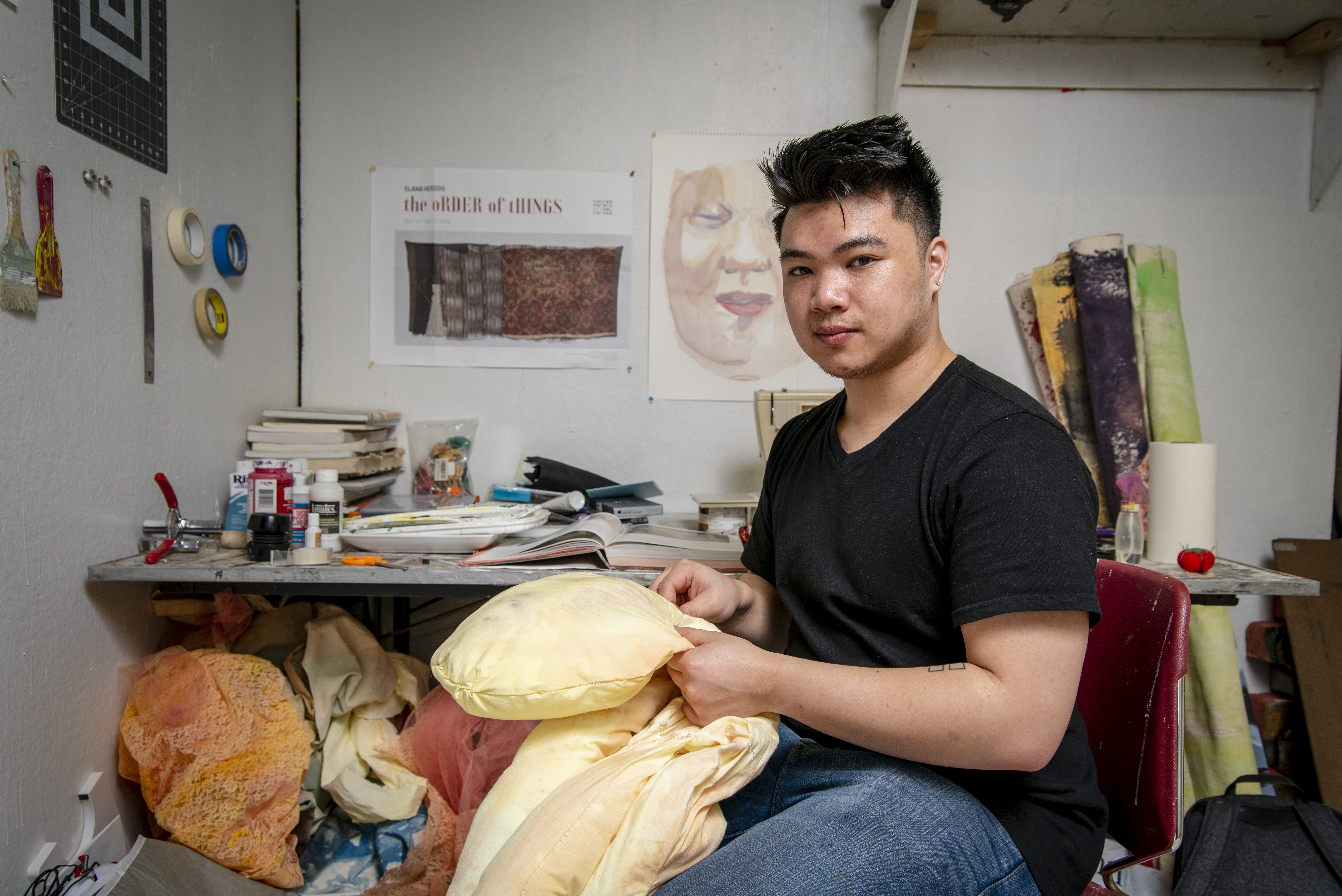James Keth
Major: Fine arts, with a minor in Biology
Degree: Bachelor of Fine Arts
Scholarships: Leadership Scholarship, University of Connecticut Fine Arts Talent Scholarship, Cynthia Reeves Watercolor Scholarship
Hometown: Quaker Hill, Connecticut
Why did you choose to study painting and biology?
I wanted to study art. It’s what I love doing. I wanted to improve my skills while learning more about the art world because it wasn’t something I was exposed to that much growing up. However, I also wanted to keep learning especially in the biological field. I was always fascinated by how living organisms worked and how they interacted. It only made sense to study both and UConn allowed me to do that.
Who is your favorite professor?
Laurie Sloan teaches a class called “Advanced Studio Art Projects.” It is a higher level course that allows for people of different concentrations to use media that they don’t necessarily work with. The projects were broad enough to create self-directed projects and you really had to think about how the medium affected the read and meaning of your artwork. Though at times it was a challenge, it was a lot of fun to work with different materials and appreciate the process of creating. I got to experiment more with painting, photography, and creating installations about topics that I wanted to explore. It is a great class to get in a headspace about creating work for a project before senior project, while also getting the chance to work with materials and processes that I don’t get to use/do in some of my other classes.

What did you accomplish during your college experience that you’re most proud of?
I got to have my own solo art exhibition thanks to the IDEA Grant that I received through the office of undergraduate research. The grant allowed me to travel to Cambodia for three weeks to collect inspiration for the show. The exhibition was a collection of pieces that explored these multi-dimensional feelings of being first generation Cambodian-American born after the Khmer Rouge genocide that my parents went through. I gained a lot in accomplishing this project such as learning how to write for a grant, creating work for an exhibition, and installing for an exhibition.
What do you plan to do after you graduate?
I plan on applying to post-baccalaureate art programs in order to take time to prepare and apply for graduate school.
How has UConn prepared you for your future career?
UConn has not only allowed me to develop my skills as an interdisciplinary artist but also a well-rounded student. On top of classes in art, art history, and biology, I got to take WGSS (women, gender, and sexuality studies) courses that were very informative yet fun to go to because you got to learn how society has developed and how it works, while also learning about topics about minorities, which usually do not always get touched upon in classes in high school. Using this knowledge, I started creating artwork that talked about being Asian and gay and figuring out what that means in art/what kind of art does that look like.
How has UConn shaped you as a person?
UConn not only helped me develop my skills and knowledge, but it gave me the environment to develop as a person. It put me in a space where I could explore who I am, but also knowing that I always had a support system if I ever needed help.
If you could summarize your experience at UConn in three words, what would they be?
Challenging. Interdisciplinary. Rewarding.
What advice would you give to a student just starting out at UConn?
Some of the best advice I was given starting college was that I needed to advocate for myself because I was one student of many and I needed to make sure to ask for help when I needed it otherwise no one was going to know I had an issue. Also take advantage of what UConn has to offer: apply for grants, go to events, go on alternative breaks, etc. For me, having the chance to gain these experiences was well worth it not only academically but personally as well.



